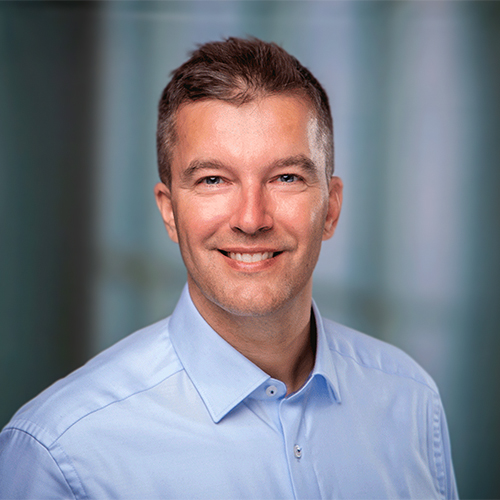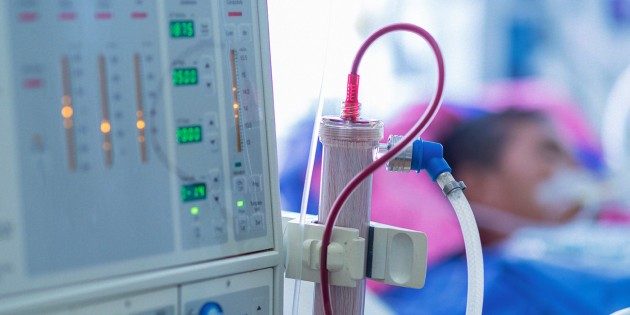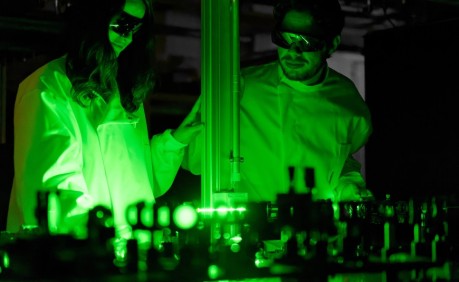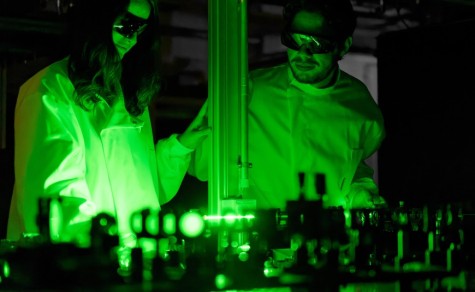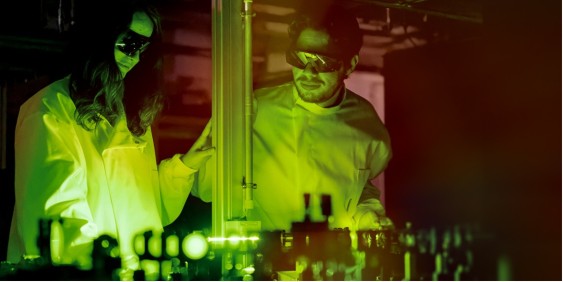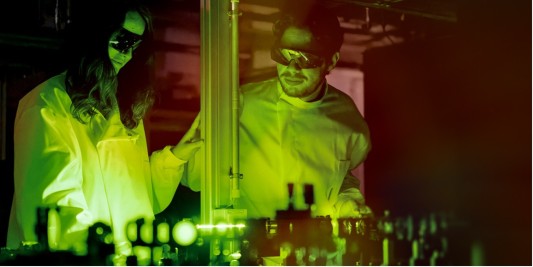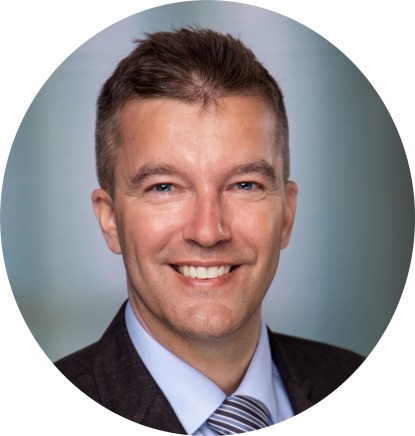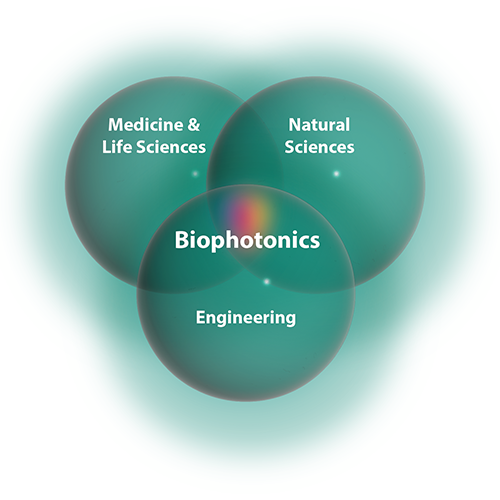
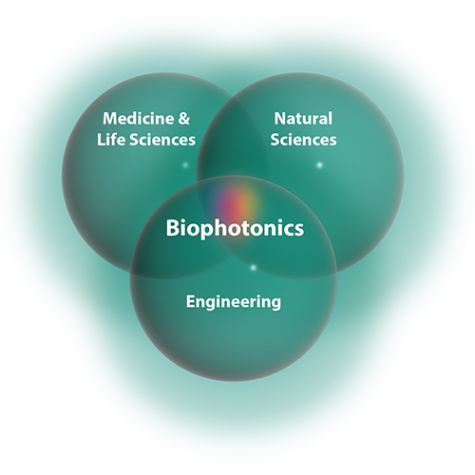
Our research is characterised by interdisciplinary approaches in the field of biophotonics. Our team works at the interface between natural sciences, engineering, medicine and life sciences.
We utilise the latest methods of photonics, a key technology of the 21st century. In this way, we are exploring novel spectroscopic and imaging optical methods that play a prominent role in modern health research. Using these measurement techniques, we can correlate pathological changes and cellular anomalies with their dynamic biochemical and molecular changes and thus recognise diseases earlier and diagnose them more accurately.
The focus of our research is on highly selective and sensitive vibrational spectroscopy (Raman and infrared spectroscopy). To this end, we are researching novel photonic methods for signal amplification and instrumentation. We bridge the gap between research into the fundamentals of innovative optical sensor principles, their realisation in systems and instruments, their translation into biomedical applications and their implementation in state-of-the-art medical devices.
We organise our work into four research lines in order to address current key issues in the healthcare system and improve the treatment of the most common diseases.







